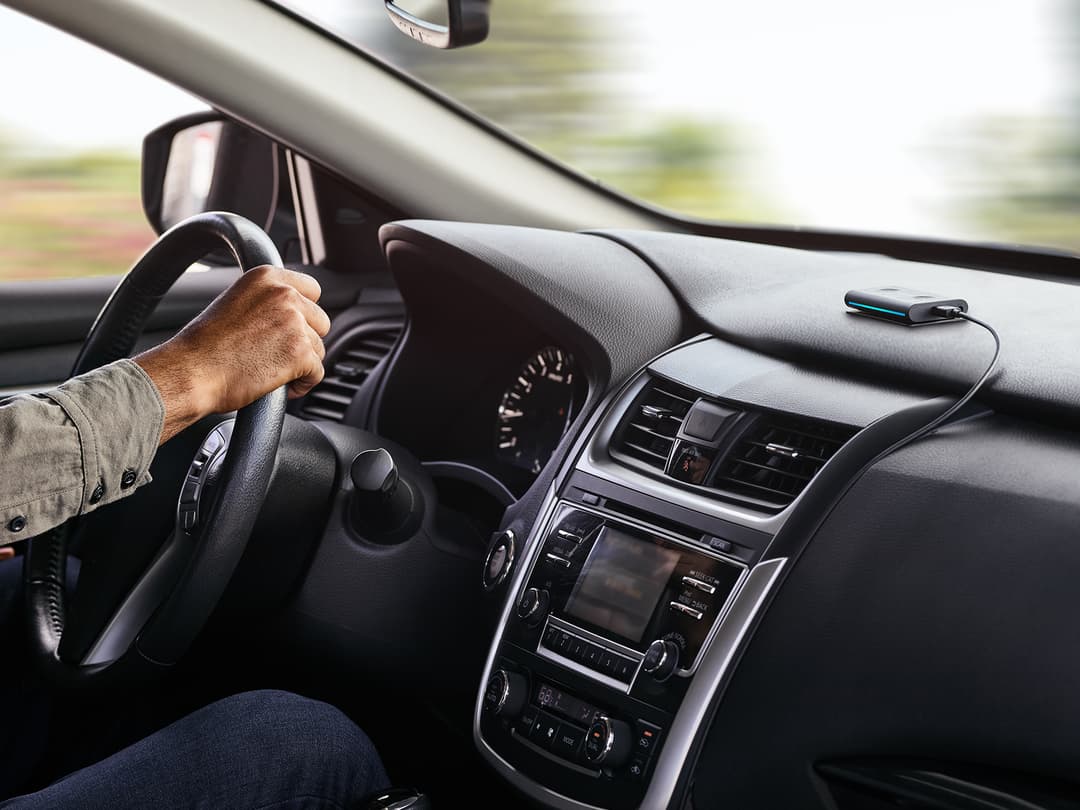Come For The Car, Stay For The Digital Human
https://bvzine.com/link/come-for-the-car-stay-for-the-digital-human
I'm in the market for my first smart speaker, so I've just spent all weekend speaking at inanimate objects. I'm joining the future here, and with Alexa, Siri and Google Assistant to choose from (sorry not sorry, Cortana), I want to make sure I'm joining the right future.
What areas of this brave new sci-fi future voice assistants are going to fit into, though, is still an open question. Uttering my innermost desires ("Alexa, turn on the living room lights") in the privacy of my own home is something I can deal with, but issuing commands at an Apple Watch in public?! I'm not going to be doing that — and not only because Siri's already off the short list on account of being piss poor.
If I'm being perfectly honest with myself, though, my smart home vision is motivated more by geekery than any genuine need. Taking my eyes off Netflix for a moment to fiddle around with the thermostat probably isn't going to put anybody in immediate danger.
The same can't be said when driving, of course; anything that takes your attention away from the road has the potential to turn real bad, real fast. And while auto manufacturers are happy to throw more and more features at their infotainment systems, most are still finding it difficult to figure out how to give drivers access to all these options without, you know, putting their lives and the lives of those around them in serious jeopardy. A physical button for each function isn't going to work now the average car has hundreds or even thousands of functions to choose from.
The Tesla solution — putting everything on a huge dashboard touchscreen — is one way around it, but it isn't really suited to the present or the future. Nowadays, when people have to drive their own cars, the lack of tactile buttons you can feel your way around forces you to look at the screen to find whatever you want to tap. In the future, when our cars drive themselves, forcing people to be within touching distance of the dashboard doesn't make any sense.

The obvious way out of this impasse is voice control. In fact, driving is probably the only everyday situation where voice control is so clearly superior to the alternatives that it's hardly even worth discussing. Anything that lets a driver access all their car's features without looking away from the road or even taking their hands off the wheel (and certainly without having to navigate through multilayered menus) is a good thing. The need to set your Roomba off with your voice instead of just pressing the button is debatable, but the worth of a well functioning voice control system in a car can't really be denied.
Auto manufacturers know this. BMW's iDrive has had its own rudimentary voice command technology for almost a decade, and in recent years has added support for Siri, Alexa and Google Assistant for people who expect their voice assistants to be even remotely capable. Seriously, BMW's native voice command sucks.
There's the problem for the auto companies. Saying "CD track four" (and exactly "CD track four", no variations allowed) to change the CD to track four might have impressed people a few years ago, but even the very basic AI the tech giants have got underpinning their voice assistants is well beyond anything a car company would be able to put together right now. That means that, to give customers the experience they're used to, the auto manufacturers don't have much choice but to rely on the likes of Google, Amazon and Apple to do the heavy lifting behind the scenes.
Being so dependent on third party services for a product's core functionality (assuming being able to skip to the next track without killing yourself is a core function of a car) really isn't such a great idea. Particularly not when it comes to a voice assistant, the main point of contact between the product and its user.
Perhaps to get a foothold in the emerging user-facing AI market, Daimler has just invested US$7m in New Zealand AI research firm company Soul Machines, contributing just over a third of the money sought in its latest funding round. The company — run by Oscar-winning visual effects expert Dr Mark Sagar — has its basis in the University of Auckland's BabyX project, a freakishly human 3D animated child that shows 'genuine' emotions based on how you treat it. So a really advanced Tamagotchi, basically.
What makes Soul Machines stand out from most of its competitors in the AI field, though, is its focus on cognitive models that simulate human thought processes, rather than machine learning based on the analysis of data. The latter is the one you'd want in a self-driving car, to inspect what's outside, but the former is potentially better suited for interacting with the actual humans inside the car, and understanding what they're trying to communicate. Not just what they're saying, but how they're saying it, and whether that matters.
Is Daimler's investment linked to its in-car voice command efforts? It's too early to say. We know that the "Ask Mercedes" app, which lets drivers find out more about their cars by asking a chatbot, is built on IBM's Watson conversational technology. IBM and Soul Machines have also worked together on giving automated customer service a human face. So Daimler could be more interested in virtual Mercedes salespeople than in-car assistants.
Either way, cars are set to become a key area for the development of voice command AIs, and cognitive models like those being developed by Soul Machines could well make the whole experience feel a lot more human.
 By
By